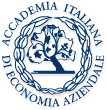'De Rerum Pareti'. On Power Laws and Organization Science
Vilfredo Pareto can be credited with discovering one of the fundamental laws that regulates network-based complex systems. From the distribution of wealth to the size of cities, from the extinction of species to the distribution of matter in the universe, a seemingly mysterious law seems to dominate disparate networks. The first evidence of this distribution comes from the studies of wealth distribution in Western economies, carried out by Pareto at the end of the 19th century (Pareto, 1897). Pareto discovered that wealth distribution is inherently unfair. Large part of wealth is concentrated in a handful of people. At the opposite end of the spectrum, most people end up dividing a decreasing fraction of the total pie. Wealth seems to attract more wealth with a force proportional to its amount, in a way reminiscent of the biblical Matthew effect "…unto every one which hath shall be given …" (Luke). Commonly known as the 80/20 rule, this distribution has turned out to be as ubiquitous as mysterious. There is virtually no sector in natural and social sciences in which the Paretian distribution doesn’t play a central role.
I will in the following present some historical evidence about the emergence of the Paretian distribution in several fields. Then I will formally introduce the concept and characteristics of a Paretian (usually known as power law distribution). I will propose a unifying scheme for the disparate theories and models that are based on power laws. In the final part I will discuss (summarily) some implications, especially regarding the importance of extreme events and the type of approach we need to deal with extremes.




